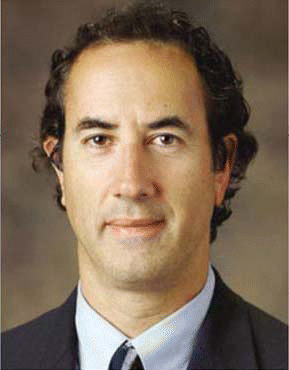The male patient in the study, identified as RP, had a 20-month history of intractable subjective tinnitus, most likely due to bilateral, symmetric, mild, high-frequency sensorineural hearing loss. Following the surgery, RP perceived a rapid reduction in tinnitus. A series of single-blinded extra-operative tests ruled out a placebo effect. Three months after the surgery, RP reported that his tinnitus was essentially gone when the electrode was active, with the residual inhibition lasting for several days after turning the device off.
Explore This Issue
May 2006The second patient, identified as MV, had been left with a left-sided hearing deficit following a motor vehicle accident in 1997. Her tinnitus was associated with short lasting bouts of otalgia and spells of vertigo. Multiple medical and masking treatments had been unsuccessful in alleviating her tinnitus, as was a procedure providing extradural stimulation. Following the new procedure, MV experienced a 30% to 35% reduction in her tinnitus.
Next Step: Refining the Technique
Currently, Dr. Seidman has 32 people on a waiting list for the surgery and he expects to perform five more procedures within the near future. Because a drawback to the surgery is its invasive nature, requiring the removal of an entire bone flap, Dr. Seidman plans to perform his next operation with a minimally invasive procedure utilizing a 9 mm burr hole.
In addition, he noted that the auditory cortex may not be the only site for electrical stimulation.
You may be able to target areas other than the auditory cortex that aren’t even in the auditory system, he commented. The obvious ones are the cochlea, the cochlear nerve, the inferior cochlear nucleus, the superior cochlear nucleus, the dorsal and ventral cochlear nuclei, and the medial geniculate body. There are different areas in the auditory pathway that you can target and have an effect. But beyond that, you can affect the places that mediate a response to a severely annoying symptom. For example, the amygdala and the hippocampus.
You may be able to target areas other than the auditory cortex that aren’t even in the auditory system. – -Michael Seidman, MD
Along this line, Dr. Seidman is collaborating with Dirk de Ridder, MD, PhD, Professor of Neurosurgery at the University of Antwerp in Belgium, who has done electrical stimulation procedures similar to Dr. Seidman’s. The two plan to implant an electrical probe into the hippocampus of patients with severe tinnitus.
The idea is to alter their reaction to the tinnitus, so it won’t bother them anymore, he said. We hope to do this within the next year.
Other Research Fronts
In addition to Drs. Seidman and de Ridder, another physician researcher studying electrical stimulation of the auditory cortex for tinnitus is Brian Kopell, MD, of the Medical College of Wisconsin in Milwaukee, who is enrolling patients in a clinical trial. A group at the Oregon Hearing Research Center at Oregon Health Science University in Portland is investigating the use of deep brain stimulation for tinnitus.

Leave a Reply